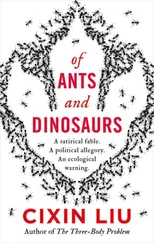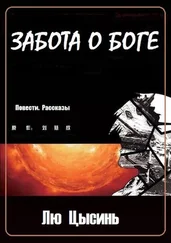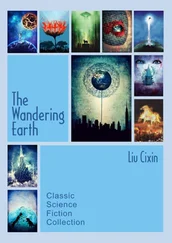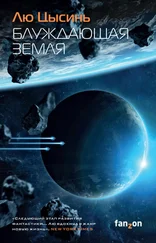Like all American children, he whiled away the endless freedom of his younger days but always kept a third eye open for some opportunity, rare but possible nevertheless, that he could seize hold of and never let go. At the time of the supernova, Davey was twelve years old, and his chance had arrived.
When he heard the president’s announcement about the disaster, he understood immediately that history was reaching out to him. Competition was brutal in the country simulation, and he nearly forfeited his life, but eventually he defeated all of his adversaries by dint of a sudden burst of superlative leadership and charisma.
But it did not proceed without fault. Even as he was reaching the apex of power, a specter loomed in his mind, the specter of Chester Vaughn.
Anyone seeing Vaughn for the first time, be they adult or child, would suck in a chilly breath and then avert their eyes. Vaughn’s appearance was the inverse of Davey’s. He was shockingly skinny, with a neck so thin it made one wonder how it could support his disproportionately large head; his hands were little more than skin over bones. The only thing that differentiated him from a starving child from a drought-ridden region of Africa was the whiteness of his skin, so frighteningly white that the other children called him “Little Vampire.” His skin seemed almost transparent, revealing the fine reticular blood vessels beneath the epidermis. It was most conspicuous on his immense forehead, giving him the look of a mutant.
Vaughn’s other notable characteristic was his aged features, which were wrinkled enough that in the adults’ era it would have been impossible to guess his age; most people would have taken him for an elderly dwarf. Davey’s first encounter with Vaughn came when he stepped into the Oval Office to stand before the dying president and the chief justice of the Supreme Court, place a hand on the Bible lying on the desk, and recite the oath of office. Vaughn had been standing at a distance beneath the national flag, silent with his back turned, entirely unconcerned with this historic event. After the oath, the former president made the introductions.
“Mr. President, this is Chester Vaughn, secretary of state. Mr. Secretary, this is Herman Davey, president of the United States.”
Davey extended a hand, but then lowered it again in confusion when there was no move from Vaughn, who remained with his back turned. What further puzzled him was that when he was about to speak a greeting, the former president stopped him with a slight wave, like a servant stopping a presumptuous visitor from disturbing his master’s deep contemplation. After a long pause, Vaughn slowly turned around.
“This is Herman Davey,” the president repeated. “You’re familiar with him, I presume.” The tone of his voice suggested he almost wished that it were the weird kid who had the fatal illness instead of himself.
When Vaughn turned around, his eyes were still directed elsewhere, and it was only after the president had finished speaking that he looked at Davey for the first time. Then, without a word or even the slightest nod of his head, he turned back around again. That glance was the first time Davey saw Chester Vaughn’s eyes. Sunk into deep sockets under heavy eyebrows, his eyes were swallowed up in darkness, like two frosty pools deep in the mountains, concealing who knows what sort of fearsome creature. Even so, Davey could still sense his expression, a pair of monster’s hands, damp and freezing, extending out of those pools to seize him by the neck and strangle him. As Vaughn turned back round, the fluorescent lights glinted off his eyes, and in that instant Davey glimpsed two frosty explosions.
Davey had a sixth sense about power. That he, as the new president, had arrived in the Oval Office after Vaughn, the secretary of state, had not escaped his notice, nor had any detail of either the office or the encounter, and it made him uneasy. Weighing most heavily on his mind was the fact that Vaughn held the power to constitute the cabinet. While this power had been granted to the secretary of state in a constitutional amendment ratified after the supernova, the sitting president, and not his predecessor, customarily had the right to appoint the secretary of state. Moreover, the previous president had emphasized this particular power, which Davey felt was somewhat unusual.
After moving into the White House, Davey did his best to avoid direct contact with Vaughn, who spent most of his time in the Capitol; mostly they communicated by phone. Abraham Lincoln had once said, of a man he refused to appoint to a position, “I don’t like his face,” and when someone argued that a man isn’t responsible for his face, shot back, “Every man over forty is responsible for his face.” Vaughn may have been only thirteen, but Davey still felt he ought to be responsible for his face. He knew little about Vaughn’s background. No one did, in fact, something rather unusual in the United States.
In the adults’ era, the background of every high-level leader was an open book to the electorate. Few children in the White House and Capitol had previously known Vaughn. The chair of the Federal Reserve did mention to Davey that her father had once brought a weird kid over to their house. Her father, a Harvard professor, had told her that Vaughn was extremely talented in sociology and history. The news was hard for Davey to wrap his mind around, since although he had heard of, if not actually met, lots of prodigies, they were all in the sciences or the fine arts. He had never heard of a sociology or history prodigy. Achievement in sociology, unlike in the natural sciences, can’t be made on the basis of intelligence alone, but requires its student to obtain a wealth of experience of society and keen observations of the world from every angle. Likewise with history; a child without real-world life experience would find it hard to gain a real sense of history, a sense that no true historian could be without. But where would Vaughn have found that kind of time?
Still, Davey was a pragmatic child, and he knew that his relationship with the secretary could not continue in this manner. Shortly after taking office, he decided to conquer his disgust and fear (even if he was unwilling to acknowledge the latter) and visit Vaughn at home. He knew that Vaughn spent the entire day buried in documents and books, speaking only if absolutely necessary, and had no friends. He stayed in his office reading until very late at night, so it was after ten when Davey paid him a call at home.
Vaughn’s residence was in Shepherd Park on Sixteenth Street NW, in an area in the northernmost part of the city known as the “Gold Coast.” It had once been a Jewish neighborhood, and later a home for predominantly black middle-class government and legal professionals. On the side closer to downtown was a large stretch of unrestored apartment buildings, one of the District’s neglected corners which, while not as crumbling as Anacostia in the southeast, was an area with a fairly high crime rate and drug trade during the adults’ time. Vaughn lived in one of those buildings.
Davey’s knock at the door drew a chilly “It’s unlocked.” He carefully opened the door to reveal a book storeroom. Books were everywhere beneath the light of a dim incandescent lamp, but there were no shelves, or anything else for that matter—not even a desk or chair. Books were stacked in piles, covering the floor. There wasn’t even a bed, just a blanket spread over some of the more evenly stacked piles, and there was no space for Davey to find a foothold.
Since he couldn’t enter, he just looked at the books from a distance. Apart from the English-language books, he could make out books in French and German, and even a few tattered Latin works. He was standing on a copy of Edward Gibbon’s The History of the Decline and Fall of the Roman Empire; just ahead was The Prince, whose author was obscured by another volume, William Manchester’s The Glory and the Dream. There was also Jean-Jacques Servan-Schreiber’s Le Défi mondial, Trevor N. Dupuy’s The Evolution of Weapons and Warfare, Arthur M. Schlesinger, Jr.,’s History of U.S. Political Parties, Immanuel Kant’s A Critique of Pure Reason, K. Spidchenko’s Economic Geography of the World, Henry A. Kissinger’s The Necessity for Choice …
Читать дальше
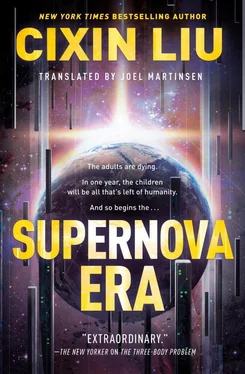
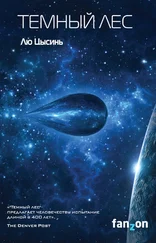
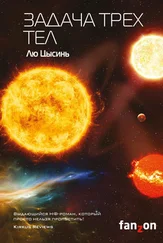
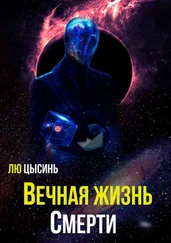
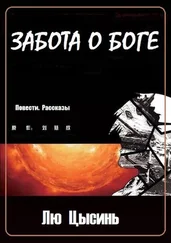

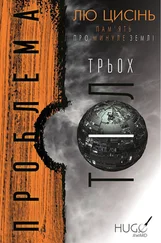
![Лю Цысинь - Эпоха сверхновой [litres]](/books/393110/lyu-cysin-epoha-sverhnovoj-litres-thumb.webp)
